KNF Regulatory Entity

In this article
In Poland, the Polish Financial Supervision Authority is in charge of the supervision of the financial market. It supervises banks, capital markets, insurance markets, and pension markets.
Furthermore, it is also responsible for the supplementary supervision of financial conglomerates. It also supervises electronic money institutions, payment institutions, and payment service bureaus. Finally, it also regulates cooperative savings and credit unions.
History
Following the financial market supervision act of July 21 2006, the KNF came into effect on September 19, 2006.
As a result of the Act, the new regulated body took over the responsibilities and regulatory powers of the Insurance and pension funds supervisory commission. In addition, the Securities and Exchange Commission of Poland is also involved.
Following the second phase of the merger of financial supervision in Poland, the KNF merged with the commission for banking supervision to form the General Inspection of Banking Supervision.
As an independent financial regulator and single point of contact for all segments of the Polish financial market, the KNF serves as a watchdog.
Due to its monitoring and response to bank liquidity provisions during the global financial crisis, it remained relatively healthy throughout the slowdown in economic activity.

KNF mission
The KNF’s mission is to ensure the smooth and orderly development of the financial market.
KNF vision
The vision of KNF is to make sure that all participants in the financial market are safe. Therefore, their main goal is to act proactively. Furthermore, KNF manages knowledge and information using modern technology.
Therefore, financial market stakeholders and supervised entities highly trust KNF.
KNF values
KNF have the following values:
Responsibility and Accountability
KNF takes responsibility for every action it takes and for everything it does for its clients. Furthermore, it performs its duties with efficiency and professionalism.
Respect
KNF treats and behaves with respect toward others. In addition, it engages in dialogue and listens to arguments.
Objectivity
KNF bases its decisions on facts and reliable information. Their work is also characterised by objectivity and independence.
Openness
KNF pays close attention to innovations and trends in the financial markets.
Commitment
KNF shows an active approach and a willingness to act. As a result, KNF oversees it and handles it with full commitment in every case.
Loyalty
The KNF remains loyal to its superiors, colleagues, and the Republic of Poland or its authorities to fulfil its duties and responsibilities.
Professionalism
The KNF performs its tasks with knowledge and experience. In addition, it continuously improves the quality of its products and services.
Tasks and Objectives
The KNF Board supervises the banking, capital, insurance, and pension sectors and the payment institutions and payment service office. Additionally, the company supervises electronic money institutions and credit unions.
The KNF Board also performs several other roles
- Supporting the best possible functioning of the financial market.
- Promoting the development and competitiveness of the financial markets.
- Educating and informing the public about the financial market.
- Participation in the development of draft legal acts about financial market supervision.
- Providing several options for the settlement of disputes between participants of the financial market amicably and conciliatorily. The KNF provides settlements, particularly those relating to contractual relationships between KNF-supervised entities and consumers of those entities’ services.
The KNF board is also responsible for many other statutory tasks.
To ensure the smooth operation, stability, security, and transparency of the financial market, market supervision is necessary. In addition, it is important to protect the interests of market participants.
Legal Framework
Following the adoption of the Act on Financial Market Supervision on July 21, 2006 (Dz. U. of 2006, No. 157, item 1119, as amended), the Polish Financial Supervision Authority was established on September 19, 2006.
This Act abolished the Insurance and Pension Fund Supervision Commission and the Polish Securities and Exchange Commission. On January 1, 2008, the Philippine Financial Services Authority took over the Commission for Banking Supervision’s duties.
International Relations
The KNF regulatory entity has the following international relations:
- Acquisition and expansion of financial sector holdings.
- The European Union’s financial supervision
- Supervision of auditors
- Consultation with the public
- Capital requirements for investment and credit institutions (CRD IV/CRR)
- Settlement of financial instruments; transparency after trading
- The European Union funds the project
- The credit agreement for residential properties
- Rating agencies are supervised
- The financial sector’s crisis management
- A scheme for guaranteeing deposits
- Payment services including e-money
- European financial services supervision architecture
- Insider trading and market abuse (MAD)
- Global financial reporting and accounting standards
- Investment services and financial instruments (MiFID)
- Life Insurance
- Protecting minority shareholders and ensuring corporate governance
- Retail investment products packaged for retail investors
- Pension system
- Counter-terrorism financing and anti-money laundering
- Personal insurance, property insurance, and life insurance
Services of KNF regulation entity for Forex
The Forex market has become a very popular activity in the Polish Capital Market. These services are provided by domestic investment firms (brokerage houses or brokerage offices within banks) and licensed foreign firms that usually operate over the internet.
Promotion and marketing activities for engaging clients in Forex transactions are under continuous surveillance. Investors’ increased interest in Forex markets may indicate their desire to earn a faster and larger profit than on regulated markets by utilising new methods of investing their capital.
On the other hand, Forex companies use a variety of methods to encourage potential clients to invest in the product. Many of these firms are acting illegally.
Potential clients should not base their decision on potential profits or a promise to assist them with executing trades on the Forex market. Investors who decide to invest in the Forex market should carefully verify who their intermediary is. Investors can find information about the points mentioned above on the KNF website.
KNF Fintech
Companies that use modern information technologies in the financial sector (known as FinTech) are growing rapidly in Poland. As a result, financial market institutions are increasingly using innovative practices to gain a competitive advantage.
Furthermore, in Poland, consumers welcome digitalisation and are eager to utilise innovative financial services offered through remote electronic channels, mainly the internet and mobile phones.
Bottom line
In Poland, KNF, or the Polish Financial Supervisory Authority, is the financial regulatory authority. As a result, many of Poland’s financial institutions are subject to different legal and regulatory requirements.
Following its regulations, the KNF has issued Polish Cloud Guidelines. The guidelines apply to all banks, insurance companies, electronic money institutions, and other organisations under its supervision.
Jason Morgan is an experienced forex analyst and writer with a deep understanding of the financial markets. With over 13+ years of industry experience, he has honed his skills in analyzing and forecasting currency movements, providing valuable insights to traders and investors.
Forex Content Writer | Market Analyst
Relevant Posts
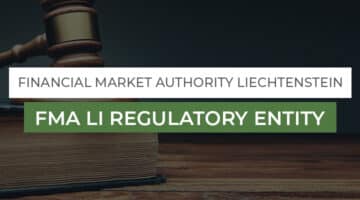
FMA Liechtenstein Regulatory Entity
[top_three_brokers] The Financial Market Authority, FMA, is the main agency for financial regulation in Liechtenstein.…
Read more
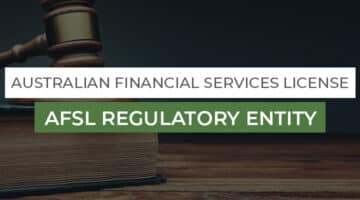
AFSL Regulatory Entity
[top_three_brokers] AFSL, the Australian Financial Services License, is a legal license issued by ASIC, the…
Read more
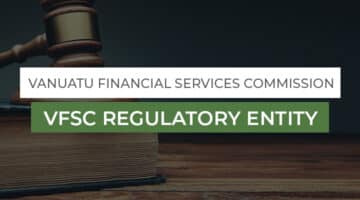
VFSC Regulatory Entity
[top_three_brokers] The Vanuatu Financial Services Commission is a regulatory organisation that supervises and regulates Vanuatu's…
Read more
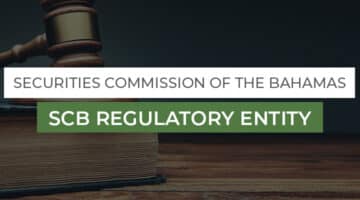
SCB Regulatory Entity
[top_three_brokers] SCB is the abbreviation of "The Securities Commission of The Bahamas (SCB)." This sector…
Read more
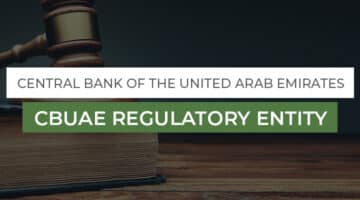
CBUAE Regulatory Entity
[top_three_brokers] The Central Bank of the United Arab Emirates, CBUAE, was founded in 1980 and…
Read more
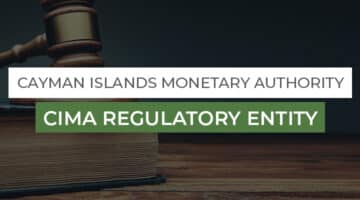
CIMA Regulatory Entity
[top_three_brokers] CIMA, the Cayman Islands Monetary Authority, is a primary regulatory entity of Cayman Island…
Read more
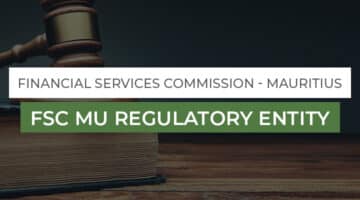
FSC Mauritius Regulatory Entity
[top_three_brokers] FSC (Mauritius) Regulatory Entity works as a regulatory body for all global business sectors…
Read more
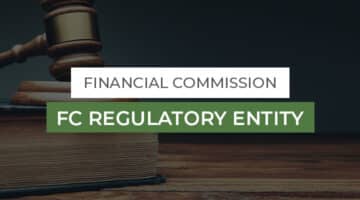
FC Regulatory Entity
[top_three_brokers] FC stands for Financial Commission, which is an independent international body for brokers and…
Read more
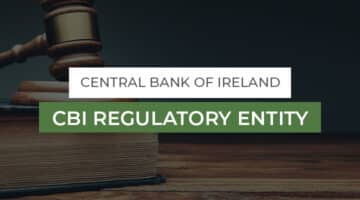
CBI Regulatory Entity
[top_three_brokers] Currently the there is no global authority overseeing the activities of the financial markets. Still,…
Read more

FSPR Regulatory Entity
[top_three_brokers] The Financial Service Providers Register is a regulatory entity that has authority over financial…
Read more

FMA Liechtenstein Regulatory Entity
[top_three_brokers] The Financial Market Authority, FMA, is the main agency for financial regulation in Liechtenstein.…

AFSL Regulatory Entity
[top_three_brokers] AFSL, the Australian Financial Services License, is a legal license issued by ASIC, the…

VFSC Regulatory Entity
[top_three_brokers] The Vanuatu Financial Services Commission is a regulatory organisation that supervises and regulates Vanuatu's…

SCB Regulatory Entity
[top_three_brokers] SCB is the abbreviation of "The Securities Commission of The Bahamas (SCB)." This sector…

CBUAE Regulatory Entity
[top_three_brokers] The Central Bank of the United Arab Emirates, CBUAE, was founded in 1980 and…

CIMA Regulatory Entity
[top_three_brokers] CIMA, the Cayman Islands Monetary Authority, is a primary regulatory entity of Cayman Island…

FSC Mauritius Regulatory Entity
[top_three_brokers] FSC (Mauritius) Regulatory Entity works as a regulatory body for all global business sectors…

FC Regulatory Entity
[top_three_brokers] FC stands for Financial Commission, which is an independent international body for brokers and…

CBI Regulatory Entity
[top_three_brokers] Currently the there is no global authority overseeing the activities of the financial markets. Still,…

FSPR Regulatory Entity
[top_three_brokers] The Financial Service Providers Register is a regulatory entity that has authority over financial…

